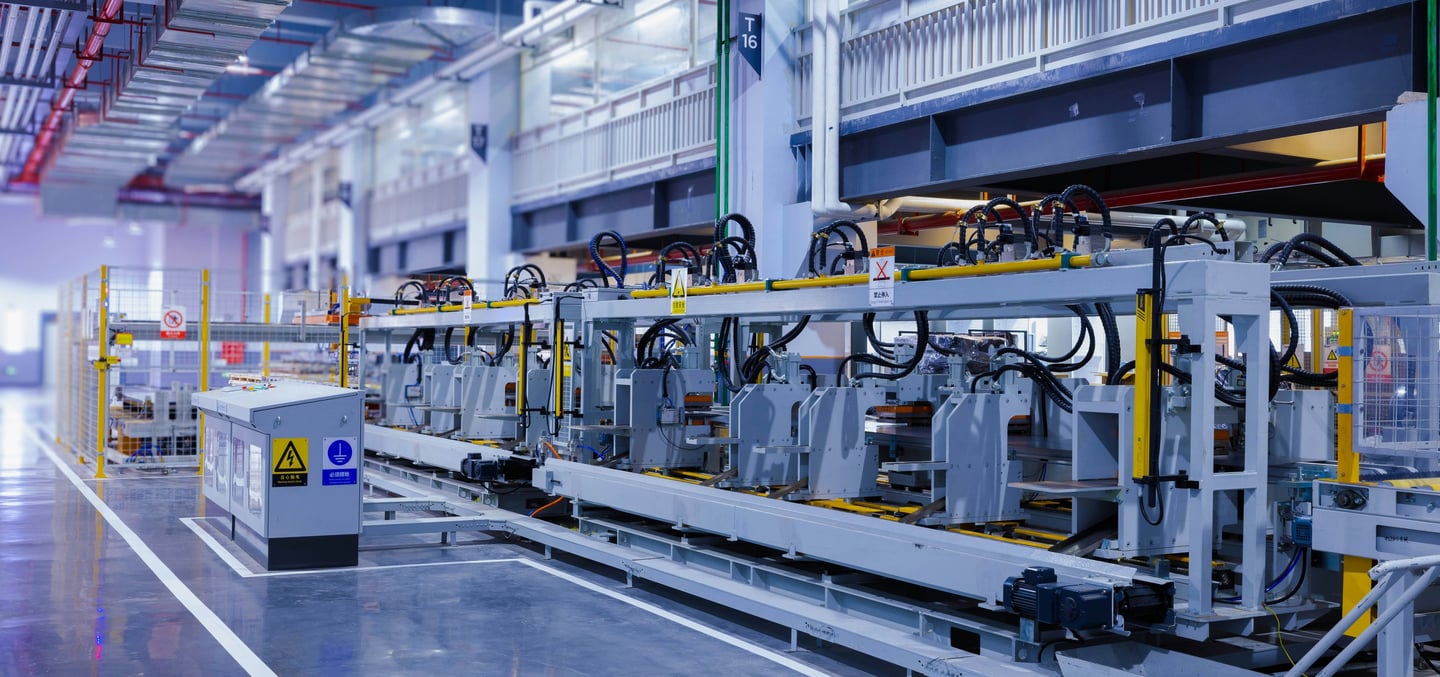Manufactring
Advanced Materials Design and Simulation: Quantum computing could revolutionize materials science in manufacturing. By simulating molecular interactions at the quantum level, researchers could design new materials with specific properties. This could lead to the development of stronger, lighter, or more energy-efficient materials for various industries, from aerospace to consumer electronics. Quantum simulations could also optimize existing materials, potentially improving their performance or reducing production costs.
Enhancing Process Optimization and Quality Control: Quantum algorithms could significantly improve manufacturing processes by optimizing complex production lines. This includes fine-tuning parameters for chemical reactions, optimizing heat treatment processes, and improving additive manufacturing techniques. In quality control, quantum-enhanced machine learning could analyze vast amounts of sensor data in real-time, detecting defects or anomalies more accurately than classical methods. This could lead to reduced waste, improved product quality, and increased efficiency.
Supply Chain Optimization: Quantum computing could transform supply chain management in manufacturing. By solving complex optimization problems, quantum algorithms could enhance inventory management, logistics planning, and demand forecasting. This could result in more efficient just-in-time manufacturing, reduced inventory costs, and improved resilience to supply chain disruptions.
Accelerating Product Design and Prototyping: In product development, quantum computing could speed up the design and prototyping process. Quantum simulations could test virtual prototypes under various conditions, potentially reducing the need for physical prototypes and accelerating time-to-market. This could be particularly valuable in industries with complex products, such as automotive or aerospace manufacturing.
Optimizing Energy Consumption and Sustainability: Quantum algorithms could optimize energy usage in manufacturing facilities, potentially leading to significant cost savings and reduced environmental impact. This includes optimizing power grid interactions, improving HVAC systems, and enhancing the efficiency of energy-intensive processes. Quantum computing could also aid in designing more energy-efficient products and optimizing recycling processes.
Enhancing Predictive Maintenance: Quantum-enhanced machine learning algorithms could revolutionize predictive maintenance in manufacturing. By analyzing vast amounts of sensor data from machinery, these algorithms could predict equipment failures with greater accuracy, potentially reducing downtime and maintenance costs. This could lead to more efficient scheduling of maintenance activities and extended equipment lifespan.
Improving Robotics and Automation: Quantum computing could enhance the capabilities of industrial robots and automated systems. Quantum algorithms could optimize robot movements, improve computer vision systems, and enhance decision-making in complex manufacturing environments. This could lead to more flexible and efficient automated production lines.
Chemical Process Optimization: In chemical manufacturing, quantum computing could simulate complex molecular interactions, potentially leading to more efficient reaction pathways, improved catalysts, and optimized production processes. This could result in higher yields, reduced waste, and the development of new chemical products.
Enhancing Additive Manufacturing (3D Printing): Quantum computing could significantly improve additive manufacturing techniques. By optimizing printing parameters, material compositions, and structural designs, quantum algorithms could enhance the quality and efficiency of 3D-printed products. This could expand the applications of additive manufacturing in industries like aerospace, medical devices, and consumer goods.
Factory Layout and Workflow Optimization: Quantum algorithms could optimize factory layouts and production workflows by considering multiple variables simultaneously. This could lead to more efficient use of space, improved material flow, and enhanced worker productivity.
Challenges and Future Outlook: While the potential of quantum computing in manufacturing is vast, several challenges remain. These include the current limitations of quantum hardware, the need for quantum-literate manufacturing professionals, and the high costs associated with implementing quantum solutions. Additionally, integrating quantum computing into existing manufacturing systems will require significant adaptation and may face challenges in terms of data integration and legacy system compatibility.
As quantum technology matures, we may see a hybrid approach where classical and quantum computing are used in tandem to solve complex manufacturing problems. This quantum-enhanced manufacturing ecosystem could lead to unprecedented levels of efficiency, innovation, and sustainability in global manufacturing operations, potentially transforming how products are designed, produced, and delivered to consumers.


